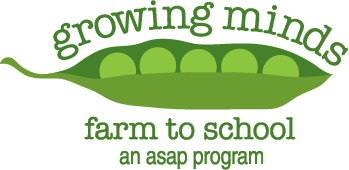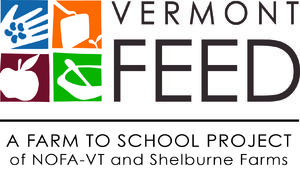Garden-Based Education
Garden-Based Education
Schools, early childhood education facilities, and alternative learning environments all play a critical role in providing students with avenues to increase their knowledge of how food is grown and produced, their understanding of the importance of healthy, nutritious food to their health and development, and their ability to make healthy food and beverage choices.
Lesson plans centered on the garden are a great way to incorporate farm to school and early childhood education principles into any kind of subject matter.
School gardens provide students of all ages with opportunities for hands-on, experiential learning activities and exposure to fresh, locally grown fruits and vegetables.
Introducing chicken coops, beehives, compost piles, and other dimensions to the garden can expand the range of learning opportunities for students.
Community Partnerships
- Pre-K through 12th grade nutrition education
- Hands-on, garden-based learning
- Cooking classes for kids and adults
- Taste-testing of appealing, healthy, inexpensive, easy-to-prepare foods
- Technical assistance on nutrition and physical activity policies, systems, and environmental changes aimed at promoting healthy lifestyles
Curricular Resources

FoodCorps is a national nonprofit that works to connect kids to healthy foods in schools. FoodCorps has created 96 lessons for grades K-5, organized through a learning progression by grade, season, and theme.

Growing Minds, the Farm to School Program of North Carolina’s Appalachian Sustainable Agriculture Project, has developed lessons spanning Pre-K through 12th grade.

Growing My Plate is a collaboration between Apple Seeds, the Arkansas Hunger Relief Alliance, and Arkansas Children’s Research Institute. This 6-course program empowers students with gardening and cooking skills, nutrition knowledge, and a desire to prepare healthy food.

Life Lab is a national leader in the garden-based learning movement. It has provided tens of thousands of educators across the country with the inspiration and information necessary to engage young people in gardens and on farms.

Vermont FEED is a project that grew out of the partnership between three Vermont nonprofit organizations with a long history in sustainable agriculture. Educators interested in developing more lessons or curriculum units around food, farming, and nutrition, Vermont FEED provides examples of Farm to School curriculum.

The Edible Schoolyard Project is a nonprofit organization dedicated to the transformation of public education by using school gardens, kitchens, and cafeterias to teach both academic subjects and the values of nourishment, stewardship, and community. Edible education provides hands-on experiences that connect students to food, nature, and each other.
